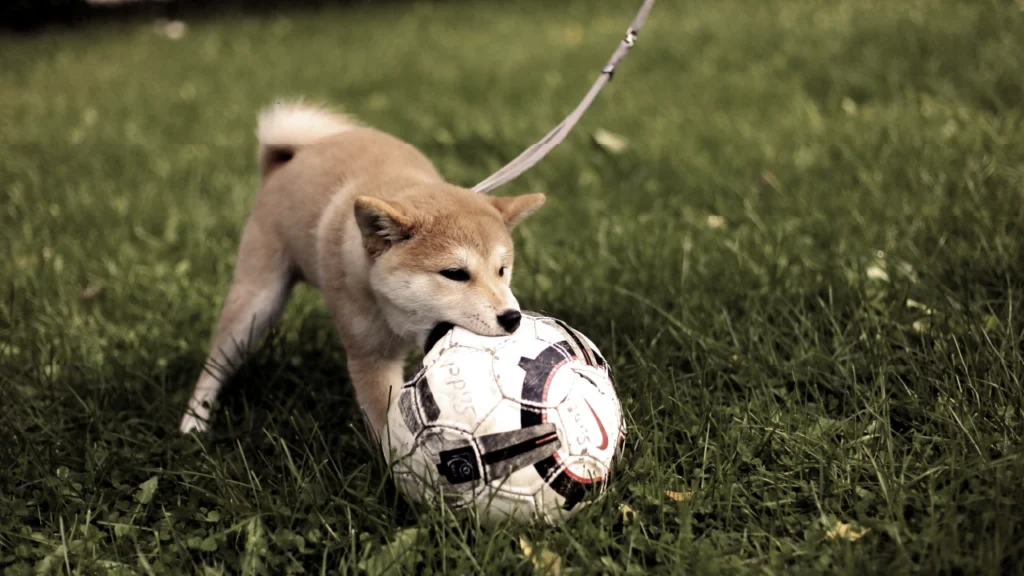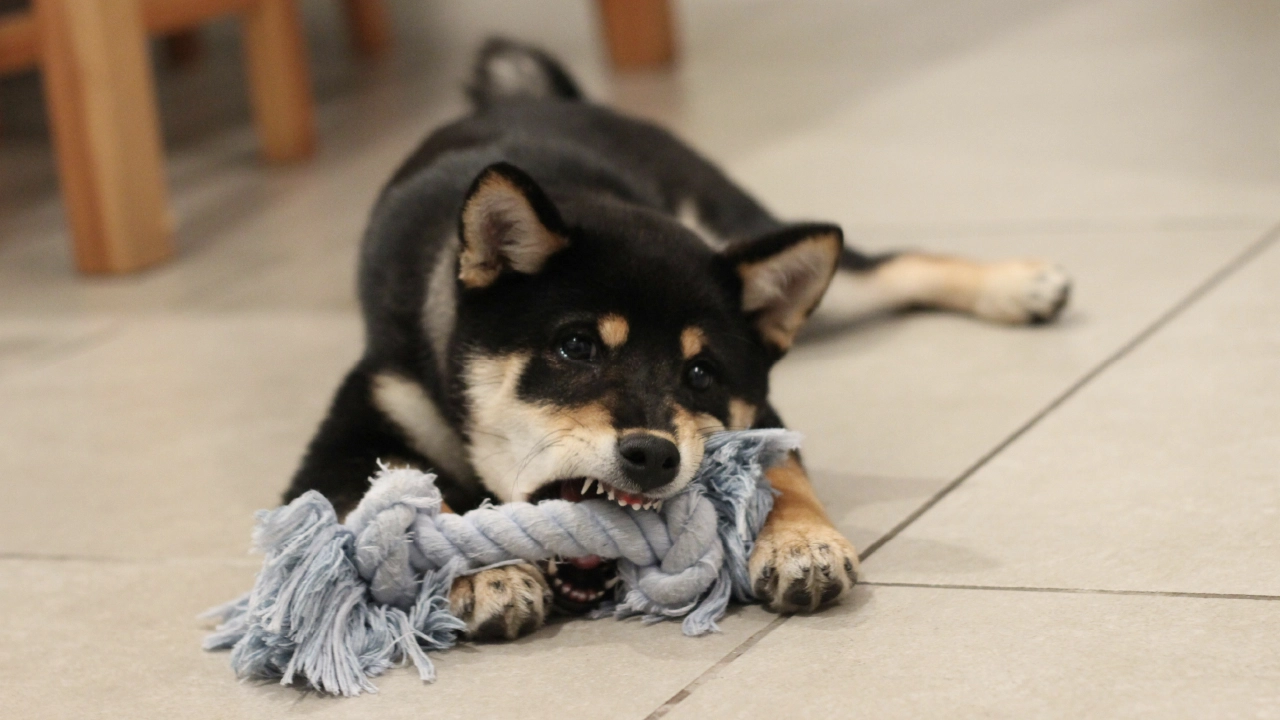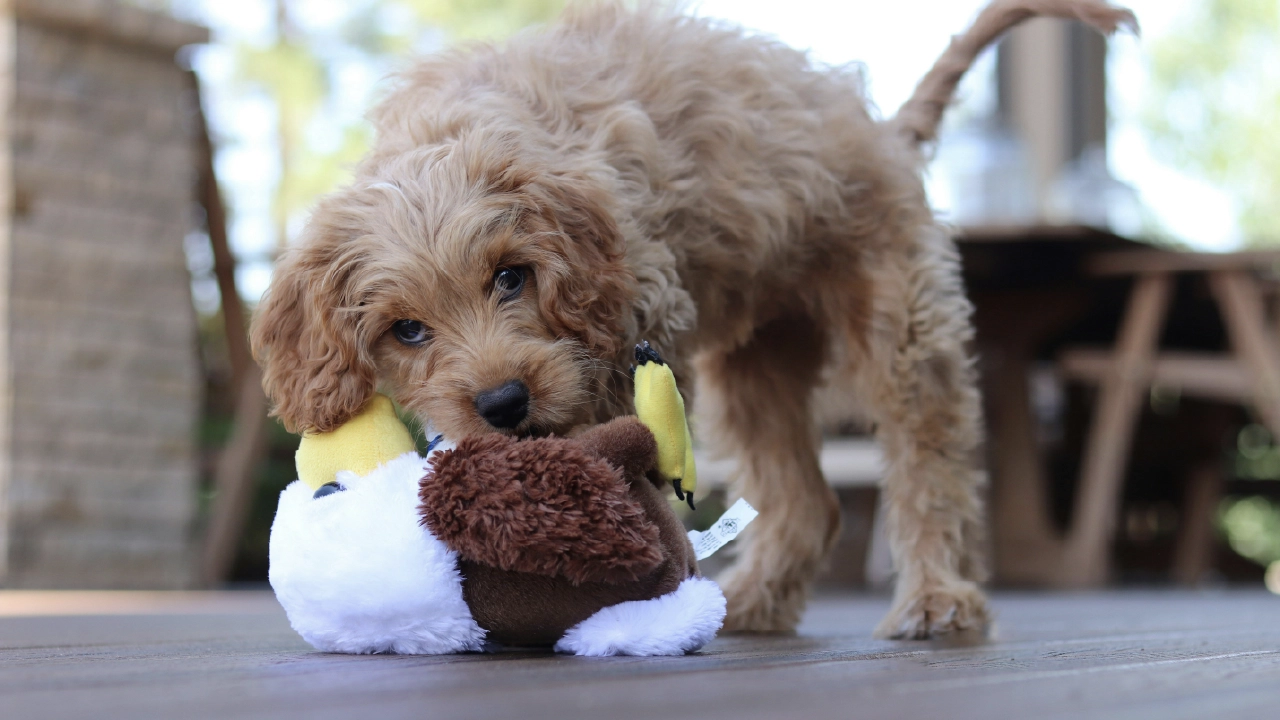Stop Puppy From Biting – Is It A Normal Behavior?
Bringing a puppy home is one of the most comforting experiences ever; every dog parent can feel this. I still remember the day when my sister and I brought our furball Nuri (his name) home—awwwww! Those big, curious eyes, the wiggly tail, and the adorable way he stumbled over his own paws. It felt like our hearts had grown a size bigger. But let me tell you, nothing quite prepares us for those sharp little teeth!
At first, we thought, “Oh, they’re just nibbling. How cute!” But soon, it became clear that our hands, shoes, and even the edges of my furniture were fair game. Those playful nips turned into full-blown chewing marathons. We found ourselves asking, Why does my puppy bite so much? Is this normal?
Yes, it’s a normal part of their growth, but trust me, sometimes it can also be frustrating. Through trial and error and a lot of patience, we finally discovered how to guide our Nuri through this phase.
In this article, I’ll share what we’ve learned to stop a puppy from biting. I hope you’ll feel confident and prepared while navigating those early days with your new furry companion.
Know Why Puppies Bite First
It’s important to understand that biting is completely normal for puppies. In fact, it’s part of the natural development of their teeth and sometimes serves several purposes.
1. They Want To Explore the World
Much like human babies, puppies use their mouths to explore their environment. For them, every bite or nibble is an experiment to gather information about the texture, taste, and resistance of the object in question.
2. Teething Troubles
At around 12 to 16 weeks of age, puppies start teething as their adult teeth grow in. This process can be uncomfortable, leading to an increased desire to chew on anything within reach. Just like human babies find relief in teething toys, puppies benefit from appropriate chew toys during this stage.
3. Playing Behavior
Biting is an integral part of play for puppies. Whether they’re playing with their littermates or with you, they use their mouths to communicate. Through these interactions, puppies learn “bite inhibition”—understanding how hard they can bite without causing pain.
How To Stop Your Puppy From Biting?
Here’s how you can address biting based on the situation:
If Your Puppy Is Chewing on Belongings
- Schedule Activities: Ensure your puppy has a balance of exercise, mental stimulation, and rest. Overexcited or overtired puppies often resort to chewing as an outlet.
- Provide Appropriate Chew Toys: Keep a variety of puppy-safe toys handy. When you catch your pup chewing on something inappropriate, calmly redirect them to one of their toys and praise them once they engage with it.
- Puppy-Proof Your Home: Keep items like shoes, cords, and other tempting objects out of your puppy’s reach.
If Your Puppy Is Teething
- Invest in Teething Toys: Choose toys specifically designed for teething puppies. Popular options include:
- Puppy teething rings
- Puppy chew freezer dog toys
- Puppy teething bones
- Supervise Playtime: Always monitor your puppy when it chews on toys to ensure it doesn’t swallow small pieces.
- Offer Frozen Treats: Freeze a damp washcloth or a carrot for your puppy to chew on. The cold helps soothe sore gums.
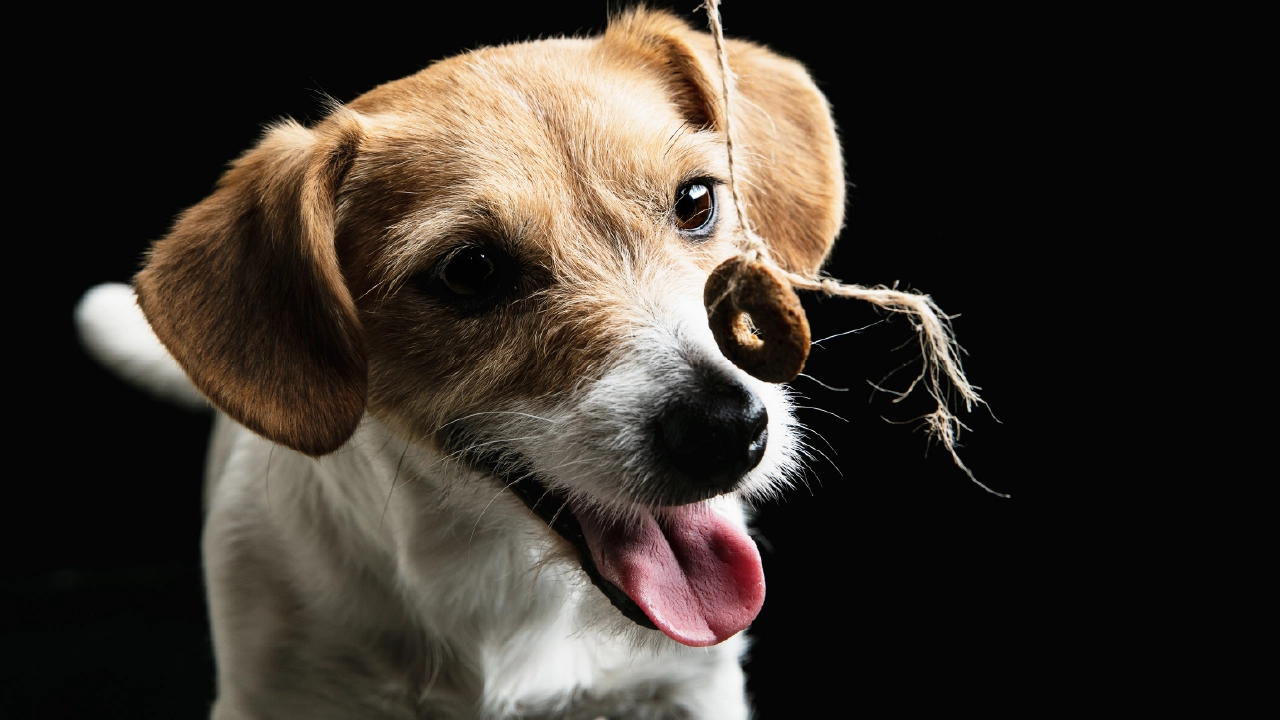
If Your Puppy Bites During Play
- Pause Play: If your puppy bites too hard, immediately stop playing. Leave the area or create a brief barrier, such as stepping behind a gate. Return after about 30 seconds with a toy to resume play.
- Avoid Encouraging Nipping: Do not use your hands or feet as play objects. This could confuse your puppy into thinking it’s acceptable to bite.
- Encourage Rest: Overstimulated puppies can become bitey. Ensure they have a quiet, comfortable space to nap.
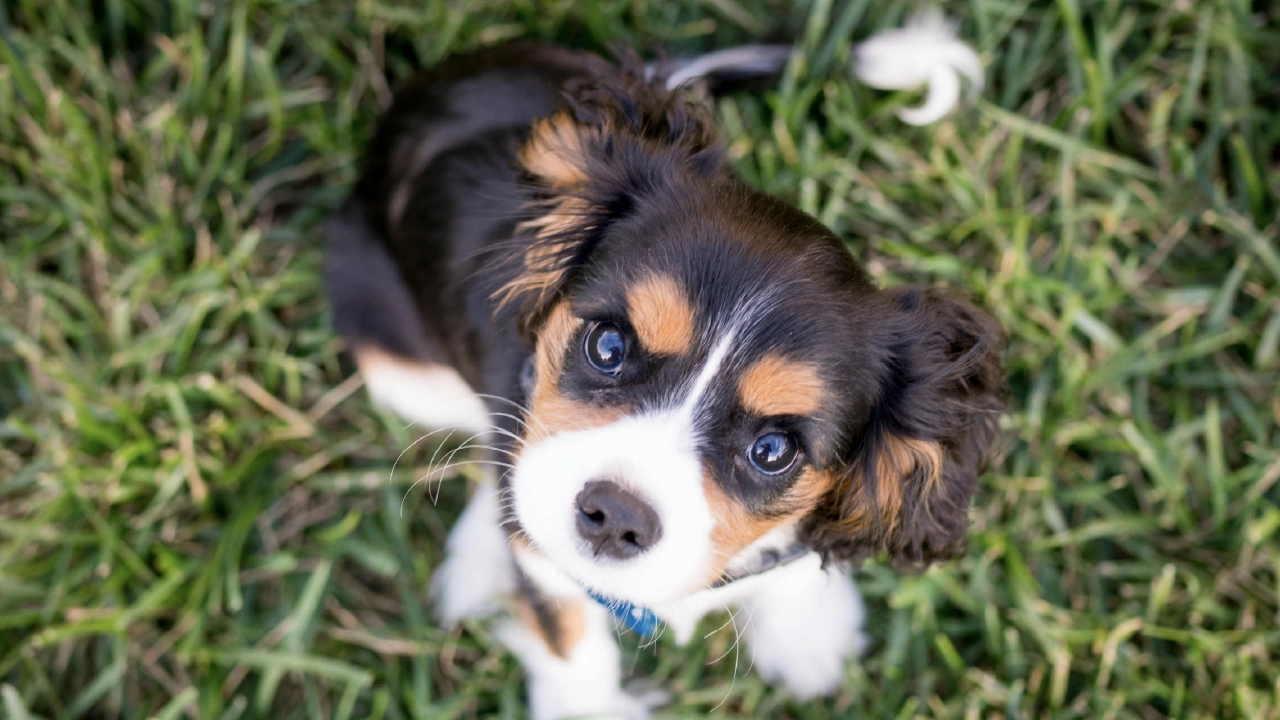
Tips To Stop Puppy From Biting
Always remember that training a puppy requires patience, consistency, and understanding. Here are additional tips to help you and your puppy succeed:
1. Use Positive Reinforcement
Praise and reward your puppy for engaging with appropriate chew toys or playing gently. Positive reinforcement builds trust and encourages desired behaviors.
2. Avoid Harsh Corrections
Physical or verbal punishment can backfire, leading to fear or even aggressive behavior in your puppy. Instead, focus on redirecting their energy and rewarding good behavior.
3. Introduce Socialization Classes
Puppy socialization classes are a great way for your pup to interact with other dogs in a controlled environment. These classes teach valuable lessons, such as bite inhibition and appropriate play.
4. Set Boundaries
Teach your puppy early on that biting is not acceptable. Use consistent cues like “no bite” in a calm but firm tone when they nip. Pair this with positive reinforcement when they stop or redirect their attention.
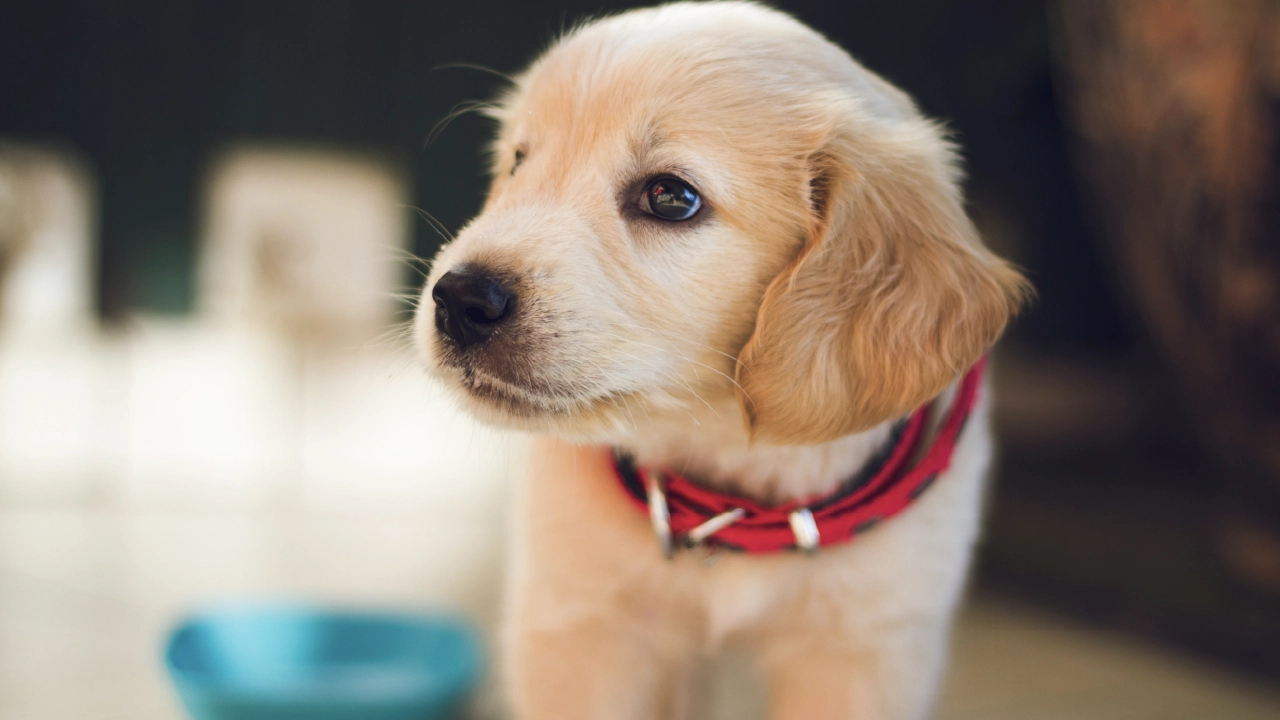
If you’re in the biting phase with your puppy, hang in there. It’s challenging, yes, but it’s also an opportunity to build trust and create a bond that will last a lifetime. Remember, you’re not just teaching them how to behave; you’re also showing them that you’ll always be there, no matter what. And trust me, one day, you’ll look back at this time with a smile, proud of how far you and your puppy have come together.

